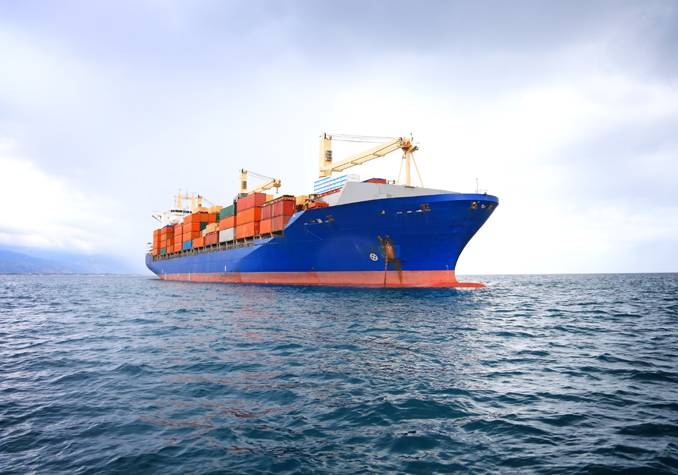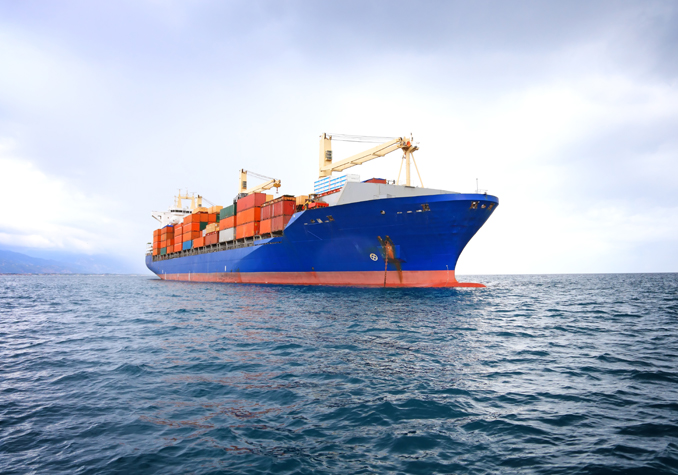World gears up to fight pollution and emissions of shipping industry by 2025, cargo ships are dying the underwater life
The planet earth is facing some serious problems since last century, a 2.0C to 2.5C increase in the global temperature, rupture of the Ozone layer around the globe, dying of the reefs under water and a massive disturbance in the ecosystems of the globe. These factors are invaded the planet earth and pushed it towards bad conditions.
What Factors Disturbing the Planet Earth?
There are numbers of factor held responsible for these conditions and all of them are produced by human beings. When it comes to the oceans and sea shores, the sea waters are becoming acidic, dying the reefs, pushing the sea species to migrate and leaving the residences of those particular areas in more hard conditions as they rely on the fishing.
Who Held Responsible?
The shipping industry held responsible for these changes in the oceans and ecosystems. The industry pushed for a loophole to be written into MARPOL which offers the IMO the vigour to prolong the measure by 2025 to save the life underwater and thus the planet earth. The researchers said that the sulphur emissions are the largest factor that the involved in ocean acidity.
The sulphur comes out from the burning of fuel by cargo ships in the oceans with massive cargo from UK to Pakistan, Caribbean to the Europe and America to the Pacific Asia, almost all the live lanes of cargo ships left the water acidic. The environmental organisations have demanded to put a cap on the sulphur emissions. The IMO has except 2018 to make a decision about whether or not the body is ready for a stricter global sulphur cap.
What Experts Say?
Dr. Corbett says, neither Governments nor industry has a difference of opinion on the result of soiled fuels on human wellbeing. What’s up for debate is the timing, fuel availability and the price of developing the refineries. It can be very costly in terms of development but it is very dangerous and costly when it comes to safety and dangers it poses to the earth and oceans. The maritime enterprise for the last century has devoted its innovation and technological advancements in the engines and propulsion programs to be ready to take the potential of the least high-priced vigour resources that have been on hand to them, these have been the lingering petroleum products.
Although the fuel price hikes were harder for the industry to absorb which may follow tighter regulation for the shipping industry. The Baltic Dry Index, a fiscal indicator that tracks the going expense for shipping, hit an all-time low in this year. With costs so low, for the shipping firms who are struggling to make big revenues.
The Massive Invaders in the Oceans
More than two third cargo of the world passes through the Asian ports, from bulk cargo for industrial use to the parcel shipping for door to door deliveries, everything passed through the Asian ports. Maersk Line, the region’s greatest shipping corporation, suggested a decline in first-quarter earnings year-on-year for 2016. In a press unencumber, it attributed the enterprise’s difficulties to the global price battle in container shipping and challenging market conditions. Maersk’s Head of Sustainability, Signe Bruun Jensen said in an e-mail that Maersk supports global regulations mandating low-sulphur fuel but acknowledges that, introducing a stricter vessel emission rule will bring challenges for shipping strains in a problematic market. The Maersk line every year pays an additional fee of about $200 million per year. The company was valued at about $185 billion by means of the market cap on the time of newsletter.
Invoice Hemmings, Director of Aviation and shipping at European NGO Transport & atmosphere, concerns that a extend now might lead to further delays at some point, he added that they concerned in the event that they reach delaying it to 2025, they might search to lengthen it later on to 2030. The issue will be considered in October 2016. However, it is confirmed that the world is ready to combat the emissions of the shipping industry.
The Damage Gauged in USA and Canada
Sensitive ecosystems across the globe are the direct hit by emissions from ships, and the improvement so one can be accomplished via designation of this ECA. Different ecosystems may also be sensitive to and harmed by means of specific pollutants, together with nitrogen nutrient loading and acidification. About 30 percent of the nitrogen in the Chesapeake Bay in the mid-Atlantic coast of the U.S. Comes from atmospheric deposition, and ships are a primary source of that pollution.
The sensitivity of an ecosystem to acidification depends on the ability of the soils to neutralise the deposited acidic pollutants formed from sulphur dioxide, carbon dioxide, and NOx. Differences in soil buffering ability are an important purpose why some areas that receive acid precipitation show quite a lot of injury, whilst other areas don’t appear to be harmed at all.
What Solutions Suggested by the West?
Utilising combined modelling of atmospheric, aquatic and terrestrial techniques, the government of Canada predicts that improving ship emissions from current performance to ECA specifications will drastically cut back the amount of sulphur and nitrogen deposition in touch ecosystems. For example, an ECA will influence in a 19 per cent discount in the extra deposition in south-western British Columbia and it’s going to get rid of excess deposition over about 13,500 km2 throughout Canada.
In the north-Eastern United States and Eastern Canada, many decades of acid deposition resulted within the preferred loss of calcium and other fundamental nutrients from several watersheds. These losses had been linked to a decline in sugar maple growth in Canada as well as a decline in aquatic micro-organisms which might be a most important meals supply for fish and other predators. Ship companies within the disciplines that will be covered by the proposed ECA regulations are many because both countries called more than 94 thousand vessels on their shores every year. All those hundred thousand vessels would fall under the new regulations to get the access to the ports of the region. The World should think optimistically on these issues to save the planet earth.














